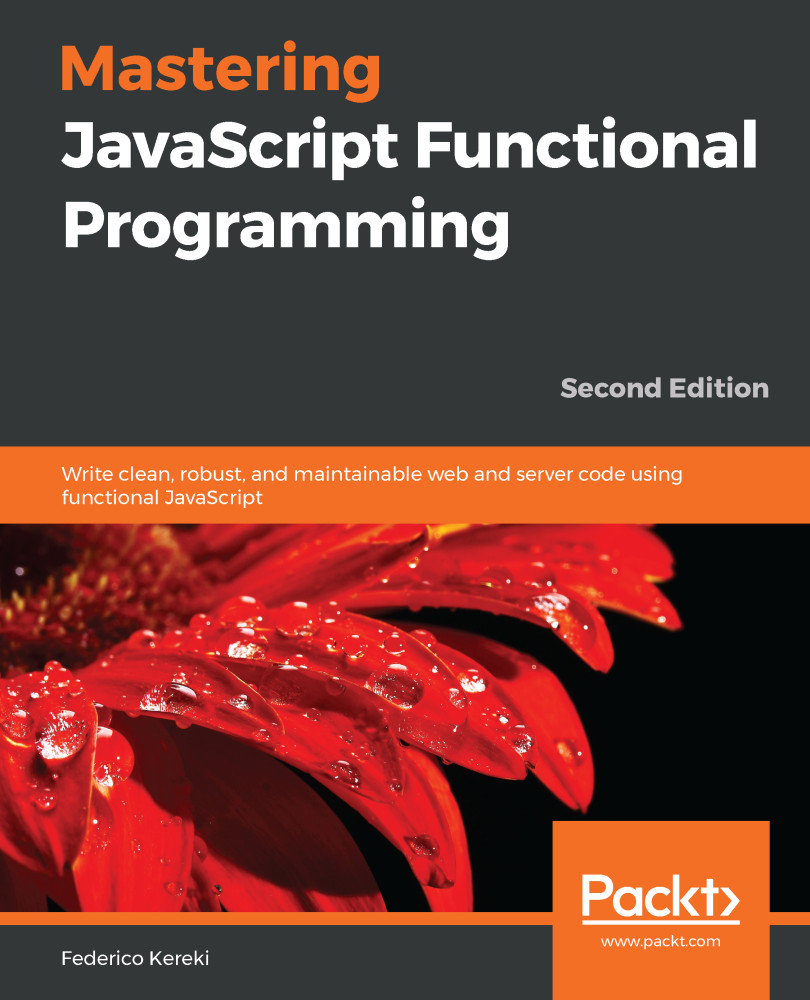Even though JavaScript is a dynamic language, without static or explicit typing declarations and controls, it doesn't mean that you can simply ignore types. Even if the language doesn't allow you to specify the types of your variables or functions, you still work—even if only in your head—with types. Now, let's learn how we can specify types. When it comes to specifying types, we have some advantages, as follows:
- Even if you don't have compile-time data type checking, there are several tools, such as Facebook's flow static type checker or Microsoft's TypeScript language, that let you deal with it.
- It will help if you plan to move on from JavaScript to a more functional language such as Elm.
- It serves as documentation that lets future developers understand what type of arguments they have to pass to the...


